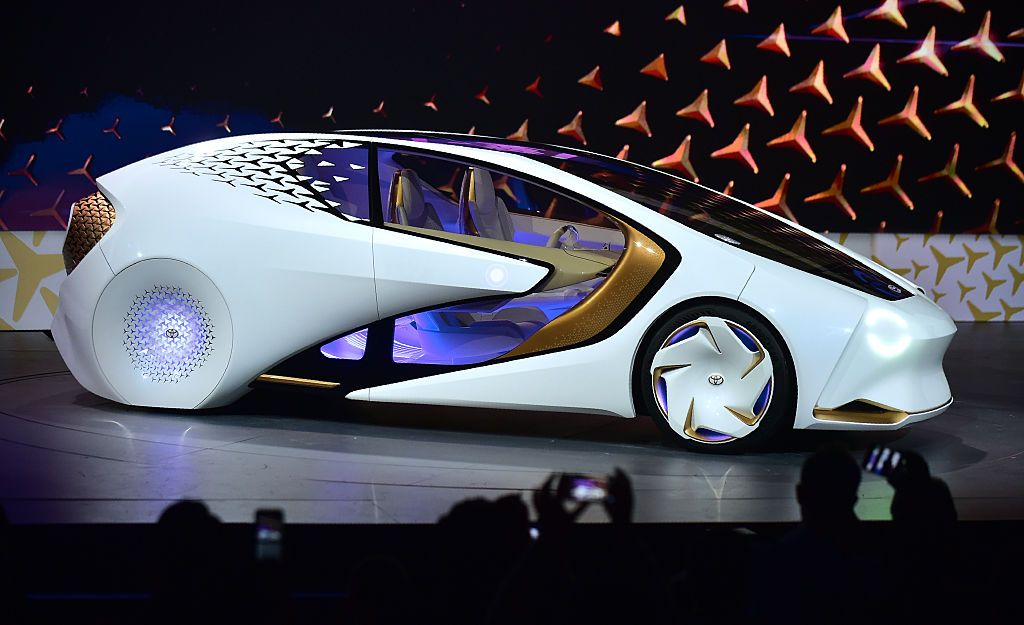American Motors Corporation was doing well in terms of sales around 1960. Nevertheless, it lacked the financial resources of the Big Three car makers of Detroit. For that reason, it usually had to make use of basic body tooling for more model years than their richer competitors.
This was true for its senior Ambassador line. The Ambassador name was used by Nash for its top line, and after AMC dropped the Nash brand it applied the name to a stretched (in front of the cowling) body that originally entered production as the 1956 Rambler.
AMC stylists kept fiddling with Ambassador grilles, tail fins, and other details in an effort to keep the aging basic body fresh looking long after a redesign would have been called for (if the Ambassador had been, for instance, a General Motors car).
For 1961, an odd front end facelift design was selected. I find it hard to understand how this happened, because AMC had a talented styling staff that included Dick Teague who was hired by AMC in 1959 when the '61s were still in the development stage. Ed Anderson was in charge of AMC styling, and I regard him as less skilled than Teague, so perhaps he okayed the design for production. Or possibly it was someone in upper management who bears responsibility -- though a manager would have to have selected a design option originating in the styling section.
The facelifted '61 Ambassadors were asserted to have a European flair. Maybe so, if some of the strangest French designs served as inspiration. As for me, I see fail to see a genuine European character to Ambassador front ends, and think the European angle was public relations hogwash.
And as it happened, sales for 1961 Ambassadors dropped from 1960 levels and 1962 Ambassadors received a facelift that eradicated the '61 design.
This is a 1956 Rambler, the first year for this basic body.
The 1961 Ambassador. Exterior body panels differ from the '56 Rambler's, but the underlying unitized structure is largely the same below the belt line.
An AMC publicity photo featuring the front.
This is what the rear looked like. Tail fins were rapidly falling out of vogue in America, but Ambassadors retained a fairly modest version for '61. This and the following photo are of a restored Ambassador via Hemmings.
Closeup view of the front design. The fender extensions are probably the worst element, and the "eyebrow" over the grille and headlights is a close second: they certainly don't work well together. The slope between the bumper and the eyebrow in itself is not bad, but it results in fussy headlight housings required for dealing with it. And those headlights, being of the nasty quad variety, are squeezed between the edges of the grille and the fender extensions resulting in plenty of clutter. Single headlights on each side would have helped, but wouldn't have rescued the design.
American Motors Corporation was doing well in terms of sales around 1960. Nevertheless, it lacked the financial resources of the Big Three car makers of Detroit. For that reason, it usually had to make use of basic body tooling for more model years than their richer competitors.
This was true for its senior Ambassador line. The Ambassador name was used by Nash for its top line, and after AMC dropped the Nash brand it applied the name to a stretched (in front of the cowling) body that originally entered production as the 1956 Rambler.
AMC stylists kept fiddling with Ambassador grilles, tail fins, and other details in an effort to keep the aging basic body fresh looking long after a redesign would have been called for (if the Ambassador had been, for instance, a General Motors car).
For 1961, an odd front end facelift design was selected. I find it hard to understand how this happened, because AMC had a talented styling staff that included Dick Teague who was hired by AMC in 1959 when the '61s were still in the development stage. Ed Anderson was in charge of AMC styling, and I regard him as less skilled than Teague, so perhaps he okayed the design for production. Or possibly it was someone in upper management who bears responsibility -- though a manager would have to have selected a design option originating in the styling section.
The facelifted '61 Ambassadors were asserted to have a European flair. Maybe so, if some of the strangest French designs served as inspiration. As for me, I see fail to see a genuine European character to Ambassador front ends, and think the European angle was public relations hogwash.
And as it happened, sales for 1961 Ambassadors dropped from 1960 levels and 1962 Ambassadors received a facelift that eradicated the '61 design.
This is a 1956 Rambler, the first year for this basic body.
The 1961 Ambassador. Exterior body panels differ from the '56 Rambler's, but the underlying unitized structure is largely the same below the belt line.
An AMC publicity photo featuring the front.
This is what the rear looked like. Tail fins were rapidly falling out of vogue in America, but Ambassadors retained a fairly modest version for '61. This and the following photo are of a restored Ambassador via Hemmings.
Closeup view of the front design. The fender extensions are probably the worst element, and the "eyebrow" over the grille and headlights is a close second: they certainly don't work well together. The slope between the bumper and the eyebrow in itself is not bad, but it results in fussy headlight housings required for dealing with it. And those headlights, being of the nasty quad variety, are squeezed between the edges of the grille and the fender extensions resulting in plenty of clutter. Single headlights on each side would have helped, but wouldn't have rescued the design.

















EmoticonEmoticon